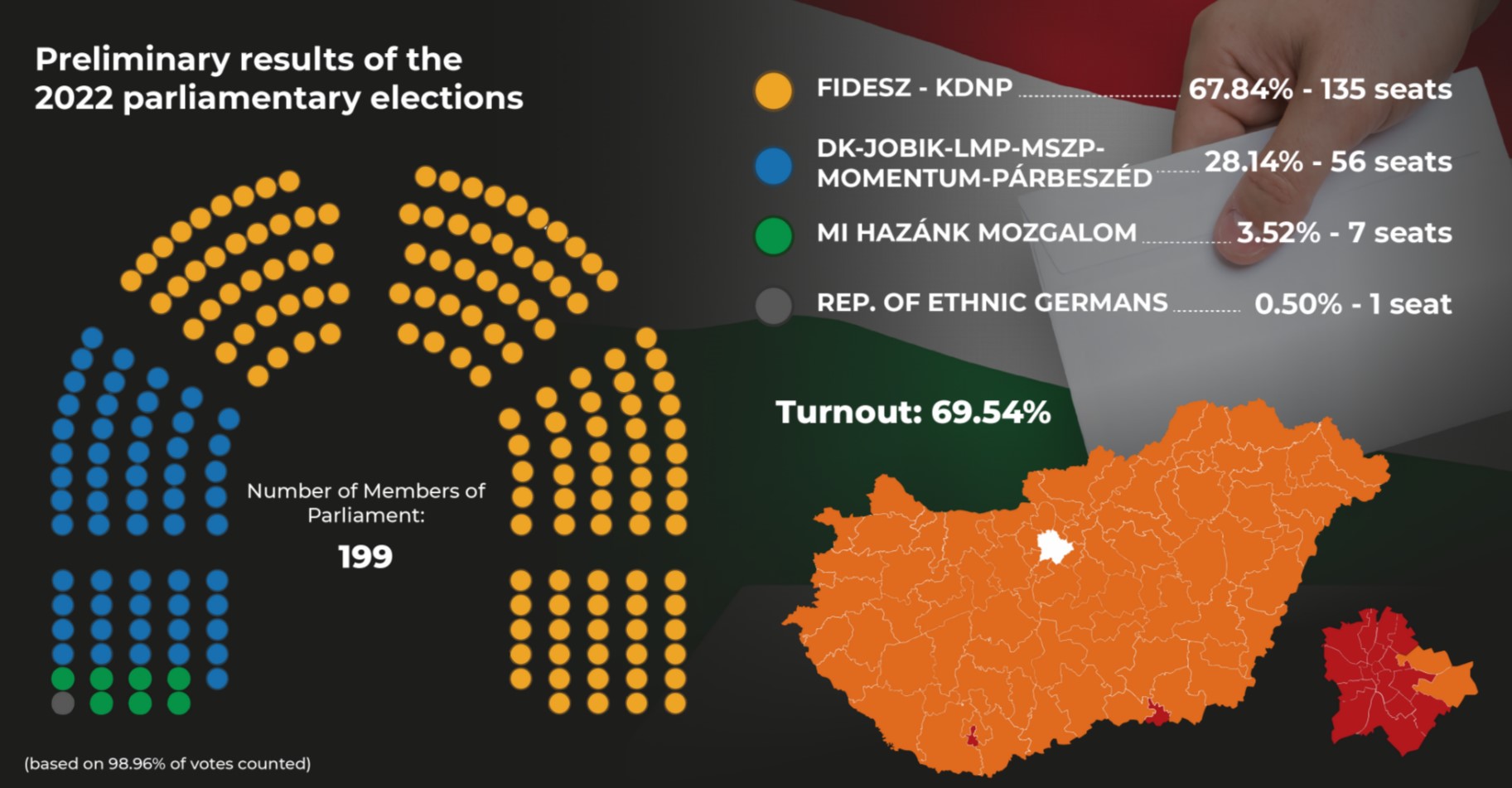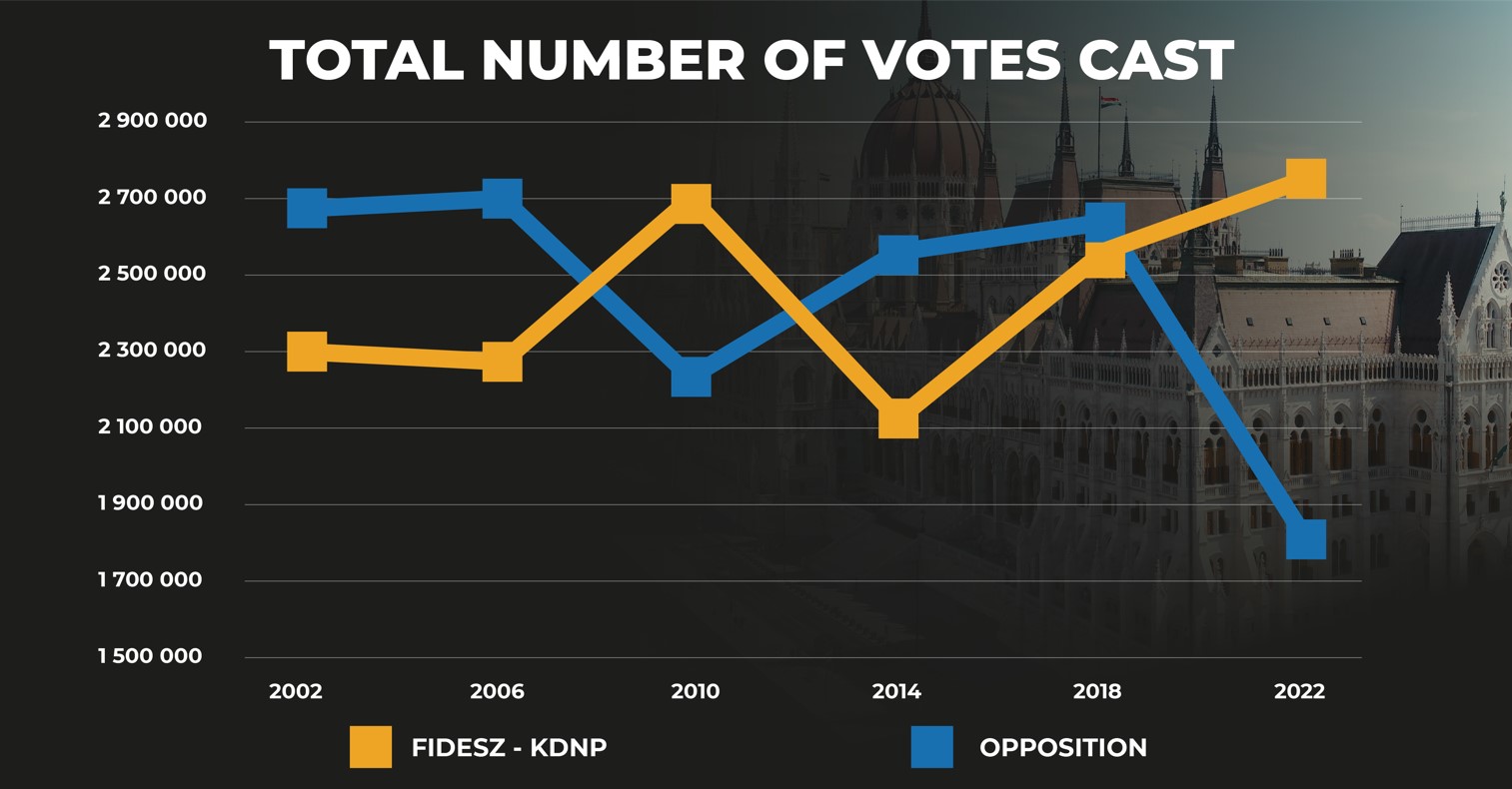Takeaway #2: …and delivered Prime Minister Orbán a landslide mandate to govern for another four years
“We have won a great victory,” said Prime Minister Orbán in his victory speech on Sunday night, “a victory so great that you can see it from the moon.”
“We won in 2018 when there was a partial coalition and in 2022 when everyone joined forces against us,” he continued. “God only knows how we can win the most at a time when they are ganging up on us.”
While many claimed that this opposition united in a broad coalition would pose the toughest challenge yet, the ruling alliance of Fidesz-KDNP defeated the opposition by nearly 20 points, 53.29 percent to 34.89 percent. According to the not-yet-final results, PM Orbán picked up two seats – 135 as of today – and a new, two-thirds supermajority in parliament.
Support for Fidesz-KDNP rose in all counties of the country, compared to 2018. In the 106 individual constituencies, the opposition won 16 in Budapest but only two outside the capital (in Szeged and Pécs). Fidesz won two in Budapest and a whopping 86 in the rest of the country.
Takeaway #3: Hungarians reelected Prime Minister Orbán for his government’s record of achievements
“We did not let the failed past return,” said the prime minister in Sunday night’s speech, “we defended Hungary’s independence and freedom, its peace and security, and we protected our children and families."
Under the Orbán Governments, marriage rates have increased, the fertility rate has risen, unemployment has reached record lows – recently, there were more Hungarians at work than before the pandemic – and real wages have risen. And that’s just part of the story.
In fact, an analyst at Portfolio.hu drew an interesting correlation between the rise in real wages in Hungary since 2010 and the growing support for the governing alliance Fidesz-KDNP.
The reaction of the markets to PM Orbán’s decisive reelection? On Monday morning, the forint was trading at 367.51 forints, 8.1 percent stronger against the euro since the low in early March.
Takeaway #4: United they fall
Support for governing parties grew. Support for opposition fell. Not by a little but by a lot.
In 2018, Fidesz-KDNP won 2.6 million party-list votes. Yesterday, the ruling alliance took 2.7 million, a gain of over 100 thousand votes.
The six-party opposition coalition yesterday won 1.8 million votes on the party list. In 2018, the six parties running individually won a total of 2.69 million party list votes. That’s a decline of 889 thousand votes. Let that sink in.


